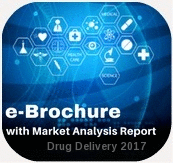
Emilie Roger
Université d’Angers, France
Title: Lipid nanocapsules: A new platform for oral drug delivery system
Biography
Biography: Emilie Roger
Abstract
The oral route is the most common route for drug delivery. However, oral bioavailability is influenced by drug solubility and permeability. For drugs belonging to the biopharmaceutical classification system class II, class III, and class IV, drug encapsulation in nanocarriers provides an alternative solution to enhance bioavailability. Lipid nanocapsules (LNCs) developed by our group, have proven to be very interesting for the oral administration. These nanoparticles have a size that ranges from 20 to 100 nm and are prepared by a well-known low energy emulsification process: The phase-inversion temperature method. They have already shown promising properties for the oral delivery of paclitaxel, Sn38, fondaparinux and miltefosine. LNCs have demonstrated in vitro stability in simulated gastrointestinal media. They have also shown their stability and diffusion in intestinal mucus. Furthermore, LNCs were taken up by Caco-2 cells (intestinal cell model) mainly via active endocytosis. This active transport was not size-dependent in the range investigated. Moreover, tight junctions were not disrupted by LNCs and consequently the paracellular transport was not possible. Additionally, these nanocarriers have demonstrated a direct effect of P-gp on their endocytosis. Finally, LNCs have the ability to enhance the bioavailability of BCS class IV drugs. Besides, another challenge of drug delivery via the oral route is to target pharmacological receptors after absorption, like nanocarriers injected via the intravenous route. For this purpose, it is important to design nanocarriers that are able to be absorbed while keeping their integrity, and thus able to behave as circulating nanocarriers. This lecture will show how LNCs allow enhancing oral bioavailibity of drugs. Special attention will be paid to the ability of those LNCs to maintain their full integrity after crossing a human epithelium model. For this purpose, two complementary techniques were employed: Förster resonance energy transfer (FRET) and nanoparticle tracking analysis (NTA).

